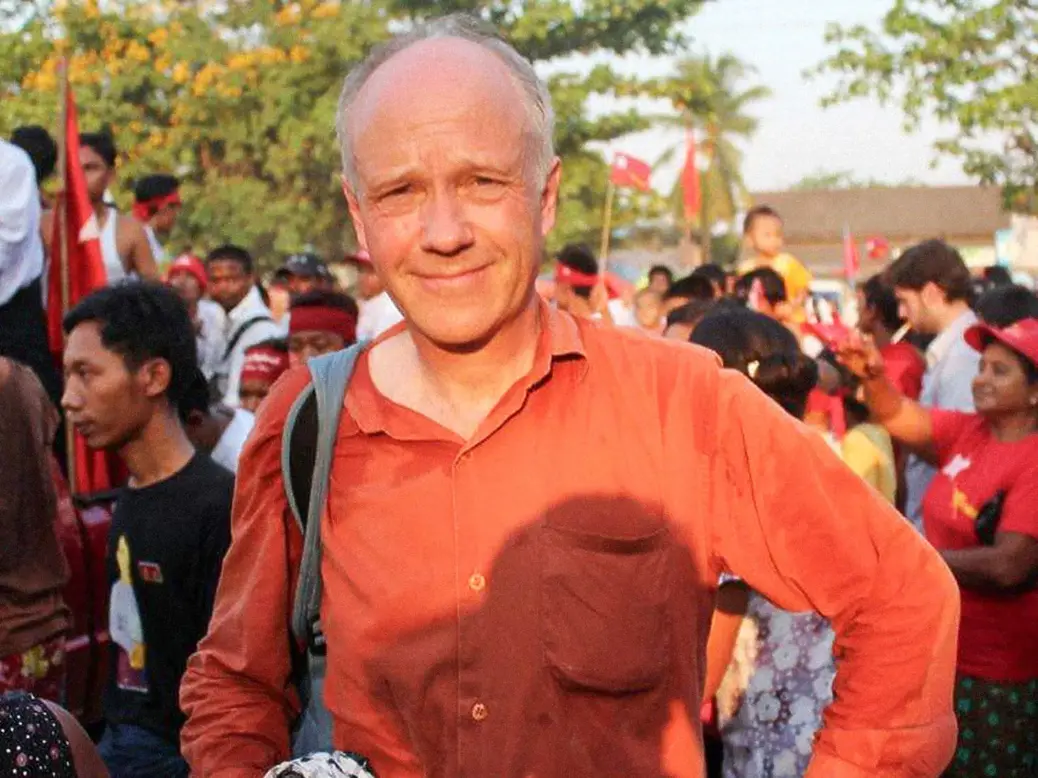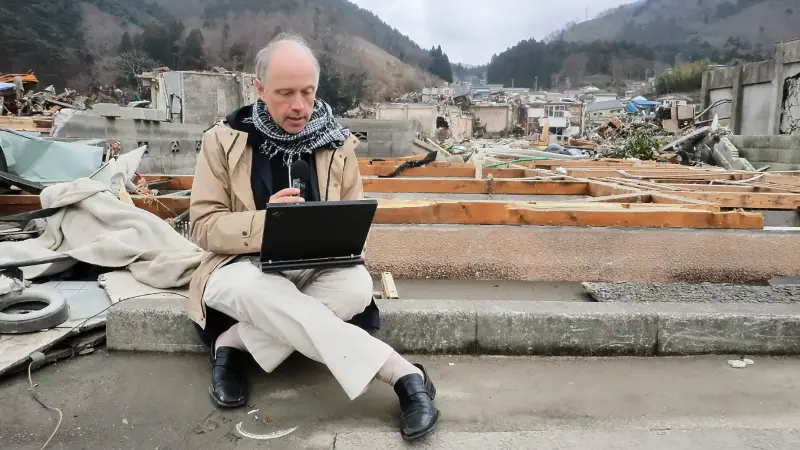
On 11 March 2014, the unthinkable happened. Swedish Radio’s foreign correspondent, Nils Horner, was murdered in Kabul, Afghanistan.
Ten years have passed, yet I vividly remember the bone-chilling cold and shock. It was a profound loss of both a journalist who was deeply appreciated, and a true friend. Naturally, the blow was hardest for his family and close ones. But the grief was also felt by many more in Sweden.
Swedish-British Nils was a unique radio correspondent. He preferred bypassing interviews with those in power, instead choosing to tell stories of significant global events by speaking with ordinary people. He was always on the move and almost always there when things were happening. Through Nils Horner, the world felt a little closer to all of us who listened to his reporting, and that meant something.
In the decade that has passed since his murder, working as a foreign correspondent has become even more dangerous and challenging in many parts of the world. Journalists in conflict zones and war-torn areas are particularly vulnerable. At Swedish Radio, as elsewhere, we’re seeing journalists increasingly becoming the target for violence and unlawful arrests themselves. The press vests, once used as protection, are sometimes now avoided to reduce the risk of harm and harassment.

Many local journalists who live permanently in these conflict zones and do not have the opportunity to leave are often the ones in most danger. Additionally, they rarely have an employer with the financial means to provide security and protection in their daily lives.
Simultaneously, the volume of digital threats has surged—surveillance, influence attempts, smear campaigns and harassment are all directed not only at journalists but also at sources and relatives. It’s evident that there are many who seek to control the flow of information and limit access to free and credible journalism.
At Swedish Radio, we’ve long prioritised foreign journalism. Today, we are proud to have the largest network of correspondents of any media organisation in the Nordic region, with around 20 geographically specialised correspondents who know their reporting areas well, as well as ten additional journalists covering the world from Stockholm.
In Gaza, through Swedish Radio correspondent Cecilia Uddén, we have collaborated with journalist Sami Abu Salem for 15 years. Since 7 October last year, using recorded voice messages, Sami has provided Swedish listeners with an almost unique insight into the harrowing daily life faced by Gaza’s population. However, local journalists in Gaza now need support from their international colleagues.
With a few exceptions—brief day trips embedded with the Israeli military—foreign journalists are not allowed entry into Gaza. This restriction has been criticised by a significant number of journalists and international media organisations, including the European Broadcasting Union .
It is crucial that journalists are not shut out, especially in an era where generative AI has significantly altered the media landscape with new opportunities for spreading propaganda and disinformation. Now more than ever, we rely on professional and impartial journalists who can be our eyes and ears on the ground, reporting information we can trust. Therefore, more individuals, especially prominent politicians, must stand up for journalism and take responsibility for its conditions.
According to a report from the Committee to Protect Journalists, 99 journalists and media workers were killed in 2023. This represents a 44% increase compared to the previous year, and three out of four deaths occurred during the conflict between Israel and Hamas. Despite international law stipulating protection for journalists and civilians in conflicts, these tragic incidents persist.
It is critical that crimes against journalists are investigated, prosecuted, and punished. Unfortunately, the reality today does not reflect this. According to UNESCO, in nine out of ten cases, those who kill journalists go unpunished.
No one has yet been arrested, charged, or convicted for Nils Horner’s death. I would dearly like to know the truth, even though I understand that it is difficult after such a long time. But let us not cease demanding it and let us keep the memory of him and the journalism he stood for alive.
Nils Horner deserves justice, just like all the journalists who, like him, are murdered in the line of duty.
This piece was originally published in Swedish news outlet Aftonbladet.
Email pged@pressgazette.co.uk to point out mistakes, provide story tips or send in a letter for publication on our "Letters Page" blog
